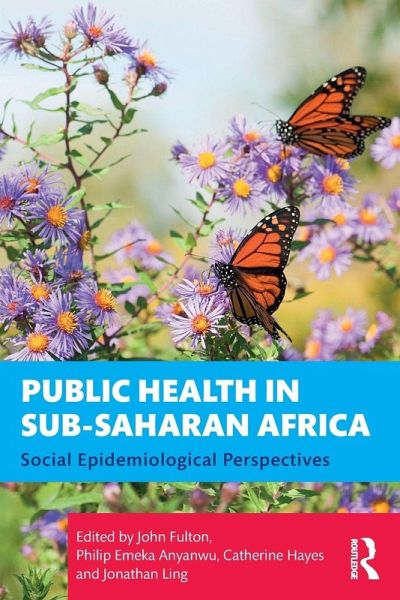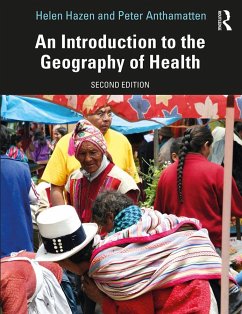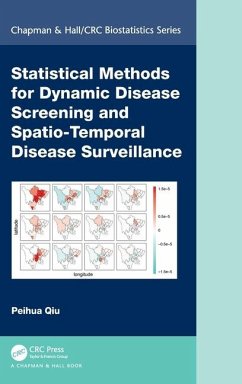
Public Health in Sub-Saharan Africa
Social Epidemiological Perspectives
Herausgegeben: Fulton, John; Anyanwu, Philip Emeka; Hayes, Catherine; Ling, Jonathan
Versandkostenfrei!
Versandfertig in 1-2 Wochen
56,99 €
inkl. MwSt.
Weitere Ausgaben:

PAYBACK Punkte
28 °P sammeln!
This fascinating collection shines a social epidemiological spotlight on the key public health issues affecting sub-Saharan Africa today.Beginning with the legacy of colonial rule, this book outlines the complex interplay between population health and a range of social, economic, and cultural factors. It shows how social epidemiological methods can offer a deeper understanding of population health and features chapters on a range of infectious diseases that continue to have a devastating impact on the region, including Sickle Cell Disease, HIV/AIDS, Leprosy, and Ebola. The final section of thi...
This fascinating collection shines a social epidemiological spotlight on the key public health issues affecting sub-Saharan Africa today.
Beginning with the legacy of colonial rule, this book outlines the complex interplay between population health and a range of social, economic, and cultural factors. It shows how social epidemiological methods can offer a deeper understanding of population health and features chapters on a range of infectious diseases that continue to have a devastating impact on the region, including Sickle Cell Disease, HIV/AIDS, Leprosy, and Ebola. The final section of this book includes a series of case studies in which social epidemiological methods have been used to explore specific public health issues.
Providing a timely overview of the relationship between social systems and human biology in the region, this important book will interest students and researchers across Public Health, Medicine, and African Studies.
Beginning with the legacy of colonial rule, this book outlines the complex interplay between population health and a range of social, economic, and cultural factors. It shows how social epidemiological methods can offer a deeper understanding of population health and features chapters on a range of infectious diseases that continue to have a devastating impact on the region, including Sickle Cell Disease, HIV/AIDS, Leprosy, and Ebola. The final section of this book includes a series of case studies in which social epidemiological methods have been used to explore specific public health issues.
Providing a timely overview of the relationship between social systems and human biology in the region, this important book will interest students and researchers across Public Health, Medicine, and African Studies.














